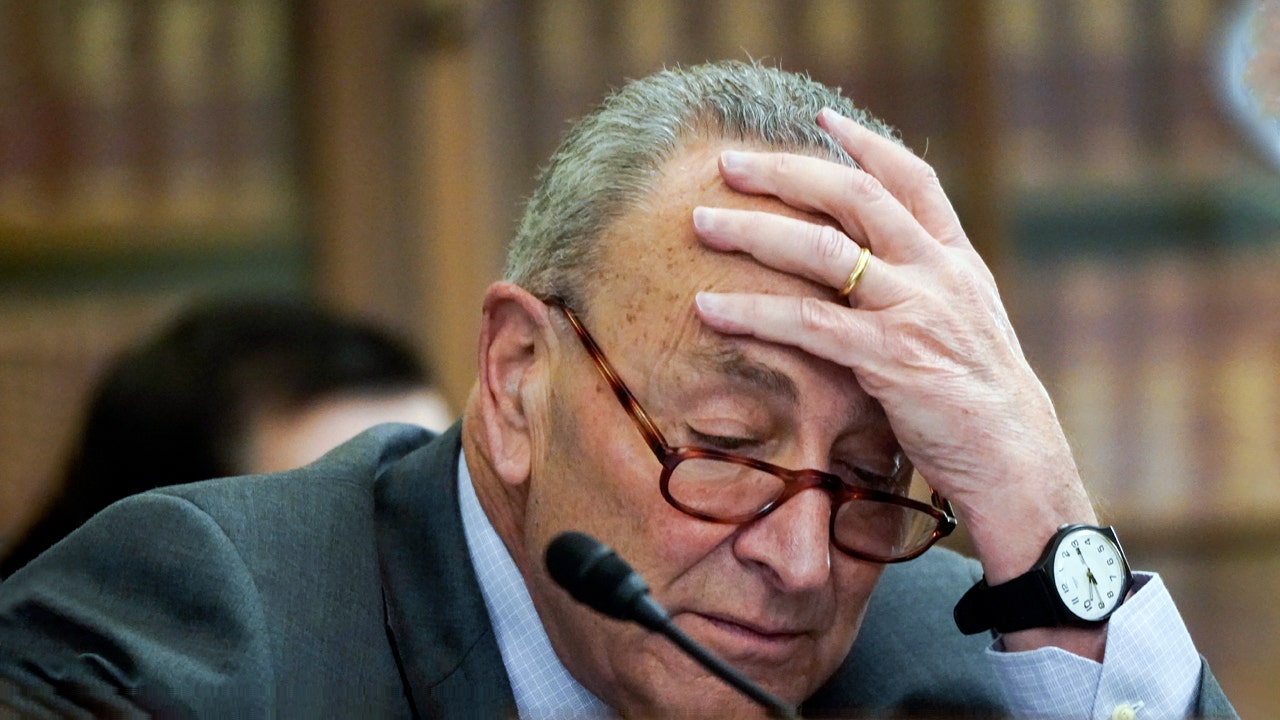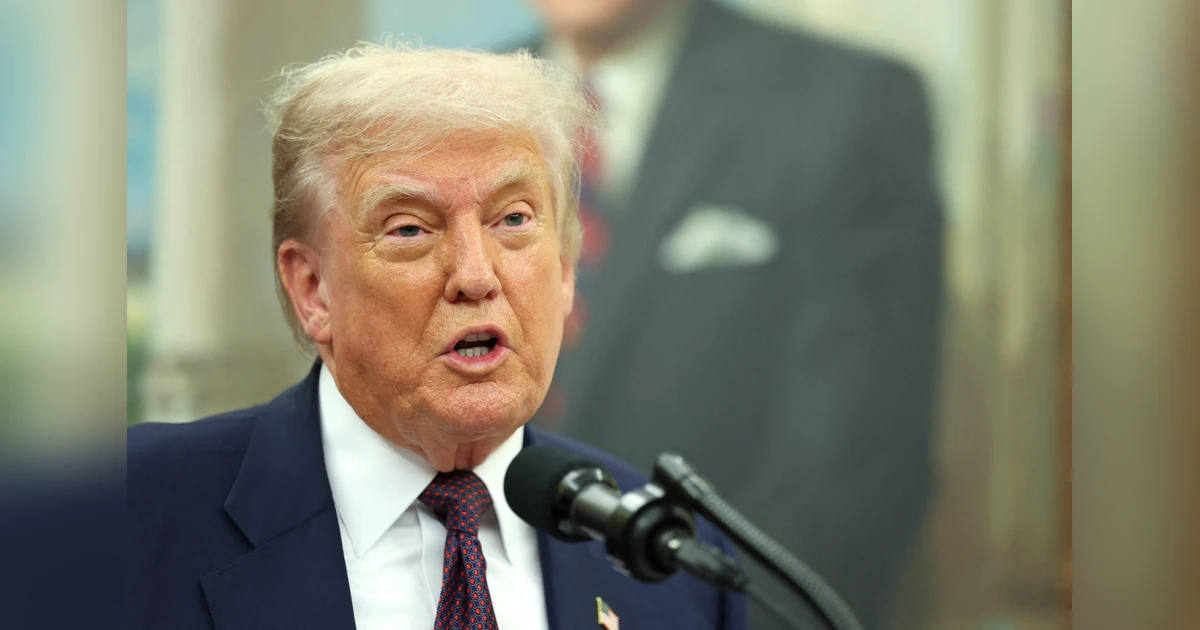The Trump administration scored a major legal and political victory on Friday when a federal appeals court cleared the way for President Trump’s plan to dismantle the Consumer Financial Protection Bureau, an agency once considered untouchable by Washington insiders.The ruling, handed down by the U.S. Court of Appeals for the District of Columbia Circuit, vacated an earlier injunction that had blocked Trump’s effort to shut down the agency.The decision represents a pivotal moment in a broader clash between the executive branch and the powerful consumer watchdog, whose very structure has long been criticized as unconstitutional by its opponents.The legal fight erupted in February when President Trump dismissed CFPB Director Rohit Chopra, a Biden appointee, and replaced him with Acting Director Russell Vought. Within days, Vought ordered staff to halt operations, freeze cases, and prepare to close the agency’s Washington headquarters.
The move sparked immediate backlash. The National Treasury Employees Union (NTEU), which represents most CFPB employees, joined other plaintiffs in filing suit against the administration, arguing that the closure was both unlawful and politically motivated.In March, U.S. District Judge Amy Berman Jackson sided with the plaintiffs and issued a preliminary injunction halting Trump’s plan. Jackson’s ruling temporarily preserved the agency’s functions and prevented the administration from executing a drastic reduction-in-force plan that would have slashed the majority of the bureau’s workforce.On Friday, the D.C. Circuit Court reversed Jackson’s injunction, siding with administration lawyers who argued that the ruling represented an overly broad intrusion into executive branch policymaking.The court concluded that the president has broad constitutional authority to oversee and, if necessary, dismantle federal agencies, particularly when those agencies have been found to operate outside normal oversight mechanisms.

By vacating the injunction, the panel effectively gave the administration the green light to continue winding down the CFPB’s operations. For Trump, the decision marks a major win in his long-running fight against what he has repeatedly described as an “unaccountable and unconstitutional agency.”The Consumer Financial Protection Bureau was created in 2010 as part of the Dodd-Frank Act, a sweeping financial reform law enacted in the wake of the 2008 economic crisis.Its mission was to regulate consumer financial products such as mortgages, credit cards, and payday loans, with the aim of protecting Americans from predatory practices.Unlike most agencies, the CFPB is funded directly by the Federal Reserve rather than through congressional appropriations. That unique funding mechanism has insulated the agency from congressional budgetary oversight, leading critics to argue that it lacks accountability.From its inception, the CFPB became a political lightning rod. Democrats hailed it as a necessary check on Wall Street excesses, while Republicans accused it of regulatory overreach and partisanship.The bureau’s critics point to a series of controversies that they argue illustrate its lack of accountability.In 2015, Investor’s Business Daily accused the agency of diverting millions of dollars from settlements intended for victims of lending discrimination into a “slush fund” that benefited politically connected groups aligned with the Democratic Party.Opponents also highlighted the bureau’s Civil Penalty Fund, which they argued allowed the CFPB to levy large fines on financial institutions and redirect the money toward preferred causes without sufficient oversight.

These criticisms culminated in a series of court challenges. In October 2022, the U.S. Court of Appeals for the Fifth Circuit ruled that the CFPB’s funding structure violated the Constitution.The court declared that the bureau’s “perpetual insulation from Congress’ appropriations power” made it no longer accountable to lawmakers and, by extension, the American people.Friday’s D.C. Circuit ruling built upon that precedent, reinforcing the argument that the CFPB’s unique design left it vulnerable to executive action. The CFPB case was not the only legal victory for the Trump administration this week.In Alabama, U.S. District Judge David Proctor rejected an attempt by university professors and students to overturn a new state law restricting diversity, equity, and inclusion (DEI) programs in public schools and colleges.The law, enacted in October, prohibits taxpayer-funded DEI programs that advance what state lawmakers called “divisive concepts.”Among the banned concepts are teaching that individuals should feel guilt for past injustices committed by members of their race or ethnicity, or that entire groups are inherently responsible for historical wrongs.Opponents of the law had argued that it stifled free speech and academic freedom, but Judge Proctor ruled otherwise. He said professors could still discuss racism and related issues in an “objective manner without endorsement,” noting that the law did not ban teaching about such topics as long as they were presented as theory or analysis.“If she frames such teaching as merely a theory, she would not violate SB 129,” Proctor wrote, clarifying that educators can still explore controversial issues, provided they do not promote them as ideological mandates.

This ruling, combined with the D.C. Circuit decision, underscored the Trump administration’s momentum in its efforts to rein in agencies and programs it considers unaccountable or politically partisan. Reactions to the CFPB ruling were immediate and polarizing.Supporters of the administration hailed the decision as long overdue. Conservative lawmakers praised the court for striking down what they see as a rogue agency that abused its independence and evaded oversight.Critics, however, warned that dismantling the CFPB could leave ordinary Americans vulnerable to predatory lending practices and unchecked corporate abuses. Consumer advocacy groups accused the Trump administration of siding with Wall Street over working families.Democratic lawmakers vowed to fight the closure through additional lawsuits and legislative measures, though the agency’s funding structure and recent court rulings have left its defenders with limited options.For President Trump, the legal victories reflect his broader governing philosophy: dismantling what he calls the “deep state” and reasserting executive control over the federal bureaucracy.By targeting agencies and programs that critics argue operate outside normal checks and balances, Trump has sought to streamline government and eliminate what he considers unconstitutional power centers. The CFPB’s fall represents perhaps the clearest example yet of this strategy in action.The administration has also framed its opposition to DEI programs as part of the same broader fight. In both cases, Trump and his allies argue that taxpayer-funded institutions have been weaponized to serve ideological and partisan ends, and that dismantling them is essential to restoring fairness and accountability.With the injunction lifted, Acting Director Russell Vought is expected to move quickly to finalize the shutdown of the CFPB. Reports indicate that agency staff have already been instructed to vacate the bureau’s Washington headquarters and prepare for termination.

The administration is also likely to pursue further actions to ensure that no successor agency is created under a different name or funding structure. Legal experts predict additional challenges in court, though the momentum now appears to be on Trump’s side.Meanwhile, the Alabama DEI case is expected to continue winding through the courts. Plaintiffs may appeal Judge Proctor’s ruling, though the decision to leave the law in effect while the case proceeds represents a setback for opponents of the measure.The dual court victories — one dismantling a powerful federal regulatory agency, the other upholding restrictions on taxpayer-funded DEI initiatives — mark a watershed moment for the Trump administration’s second term.The ruling against the CFPB dismantles what was once described as an “untouchable” agency, created to be insulated from both Congress and the White House. By vacating Judge Jackson’s injunction, the D.C. Circuit signaled that such insulation is no longer defensible under the Constitution.At the same time, the Alabama decision highlighted the shifting legal landscape surrounding DEI programs in education, further underscoring the administration’s determination to roll back policies it sees as divisive and ideological.Together, the two rulings represent a major boost for Trump’s agenda and a significant blow to progressive efforts to preserve agencies and programs viewed as central achievements of the Obama and Biden years.As the administration moves forward, the fight over the role of federal agencies, the limits of executive authority, and the future of DEI programs is certain to intensify. For now, however, Trump and his allies are celebrating what they describe as a long-overdue correction to years of government overreach.
